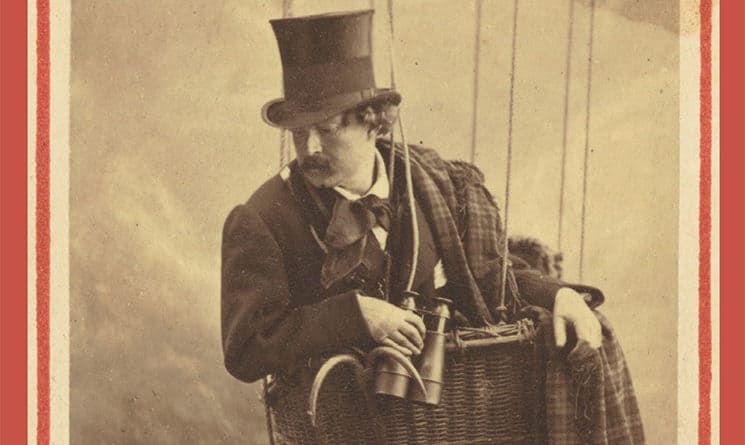Early in his career as a writer, Andrew Merton worked as a reporter for daily newspapers. “Tight deadlines and strict word counts,” he said. “No time for space or anything fancy — habits I carried over into poetry.” But with journalism, there is little room for fabrication or whimsy, no place to be anything other than yourself: the journalist, the collector and distributor of news.
While Merton’s poetry might carry over some of the stylistic habits he developed as a journalist, the content of the poems is fantastical. “Lost and Found,” his latest collection of poetry, moves between surrealism and confession, sometimes utilizing both, for an honest, unflinching look at Merton’s own life through the lens of more than 60 poems. The book, his second work of poetry, is officially released this month, and Merton will read from it at RiverRun Bookstore in Portsmouth on Thursday, Jan. 14.
“In poetry, I can unleash my imagination. I can combine the factual and the mythical, invoke Czech-speaking muskrats, or have a drink with a long-dead pilot,” he said. He imagines a conversation between himself and a gallery curator, and even confesses to impersonating Andrew Merton, or at least the idea of his name, as he does in “Being Andrew Merton,” the collection’s first poem.
“Hardly any of it is literal truth,” he said. “I usually take some liberties, but a lot of it is very strongly based on events in my life.”
Merton lives in Durham and retired from the University of New Hampshire last May after four decades in the English Department. “I started life as a journalist and my lone college degree is in history, so when I got a job teaching at UNH, it was supposed to be a two-year gig and it turned into 43 years,” he said. “At the end I was chair of the English Department. Here’s a guy who doesn’t have a degree in literature, so there’s always been a part of me that’s thought, ‘I’m doing a very good job at faking this whole thing.’”
“I’m imagining a dissection of my life
after it is over.” — poet Andrew Merton
The poems in “Lost and Found” explore the territory between what’s fake and what’s real, the authentic and the imitation. In “New Year’s Eve on the Redeye From Logan to Heathrow,” the poem’s speaker is “busy designing a coffin / for the dying year” while in conversation with an insistent British man about Antony Gormley’s “Angel of the North,” a 60-foot steel sculpture depicting an angel’s torso with biplane wings. “Bloody blasphemous thing, says my companion, / it ought to be melted down, / as Jesus would have done long ago.” The images in every poem act as a foundation, and Merton builds atop each scene with weight.
“I have spent a lot of time in Britain, I’ve spent some time on those overnight flights. Weird stuff happens, so it’s easy for my imagination to do something like that.
“What I did then was write a book that was essentially autobiographical, even if you consider that the more surreal poems in there have an autobiographical element,” said Merton.
In “Autopsy,” Merton puts himself on a coroner’s table, except that what’s removed is a collection of memories — “an old rubber ball / lost in some dark corner / of Washington Square Park” and “an empty bottle of Jameson’s.”
“I’m imagining a dissection of my life after it is over,” he said. “And most of those items in there I’ve had some experience with. They have meaning for me.”
Early in “Lost and Found,” the poems concern childhood and the half-understood moments of youth. “Notes on a Progressive Education” describes how students view the one-way glass observation room in a classroom. In “The Day I Crossed Over to the Dark Side,” Merton, as a child, makes a joke to his friend and the humor doesn’t catch. The collection develops the pensive, somber voice of adulthood under the weight of knowledge and experience. In “Timing,” the speaker’s father dies a week after his 18th birthday, and the entire third section of the book skirts between darkness and a comedy that might be charitably described as bleak.
Yet Merton finds lightness and humor in these moments. “The last one is really kind of off the wall,” he said of the poem “Biopic,” which starts with the line, “At the end of the film of your B-list life / the A-list actress playing your young widow / walks away from your grave.” He laughed, saying, “That’s me in one of my darker moments going, ‘Oh, so this is how it’s going to end.’”
The best poems of the collection seem to have more stories behind them than what’s presented. In “Across the Street From Graceland: A Professor’s Epiphany,” he describes a gathering of low-rent Elvis impersonators, “mangling In the Ghetto / and Cold Kentucky Rain.”
“That’s basically a true story,” he said. “I was an Elvis fan as a kid, I still like a lot of his stuff and I have a bond with my daughter — somehow she’s an oldies fan, even growing up many years later — she likes Elvis. So the two of us, 10 years ago, we took a father-daughter trip down to Graceland and that exact thing happened: There was this tent and guys were doing Elvis karaoke and messing it up.” In the poem, someone approaches them gawking at the off-key Elvises and says, “Those are amateurs up there. / The real impersonators are on a break.” In “Lost and Found,” it’s clear that Merton isn’t faking it.
Andrew Merton reads from “Lost and Found” on Thursday, Jan. 14 at 6:30 p.m. at RiverRun Bookstore, 142 Fleet St., Portsmouth.
Top of page: A section of the cover image of Lost and Found.

